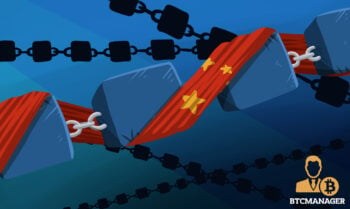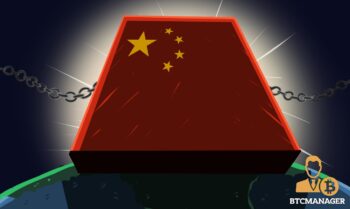
2021-11-24 20:04 |
Following a period of rapid growth and innovation, the China internet sector has entered a new phase of development with both push and pull factors driving internet companies to evolve, including tightening regulations, an increasingly saturated domestic market with changing demographics, and geopolitical tensions.
The 4th edition of the China Internet Report looks at how these factors are influencing companies to look outside their established markets, pivot business models, focus on new customer segments, and adapt to shifting dynamics to remain competitive.
Invezz talks to Eugene Tang, a business journalist with 16 years of experience in China, about the most important findings.
Over the past five years, China’s blockchain market has been growing by at least 80% every year. What factors are behind this tendency?
The explosive growth was the result of policy support by the state, combined with experiments in fintech by the private sector, especially by the biggest internet/tech companies that are jumping on the latest technological trends to find usable applications to fit into their platforms. The Chinese government, driven by an interest to stake a claim in cutting edge technology on all fronts, was actively promoting the exploration of blockchain applications.
Alibaba and Tencent have been the undisputed leaders in blockchain based on the number of patents they own. Are any new players expected to enter this market?
At least eight China-based companies involved in blockchain-related technology received funding from cryptocurrency companies like Cobo to the AI/blockchain company Impulse Technology in Shanghai.
During the pandemic in 2020, Tencent-backed fintech company WeBank helped governments in mainland China and Macau launch a blockchain-powered health code system. According to the report, the system allows local health authorities to verify the health condition of travelers without the direct exchange of personal data. How is this possible?
It’s a matter of which data points are being offered for use. Individuals’ health status, vaccination records, contact with infection hot zones can be offered, without delving into other aspects of personal, confidential data.
Global NFT sales jumped from $53 million in Q4/2020 to $1.23 billion in Q1/2021. This is a huge increase. What factors account for it?
The NFT phenomenon is going through a phase of explosive growth, as the estimated US$8 trillion of liquidity unleashed by global central banks for shoring up the world’s economy in the Covid-19 era continues its search for yield, ending in such newfangled instruments as NFTs.
20.87 million personal wallets and 3.51 million corporate DCEP wallets were opened since the system launched in May of last year. How do you explain the high interest in this e-payment system?
China’s digital currency electronic payment (DCEP) was accompanied by a cash gift of 200 yuan (US$30) per account. Who says no to free money?
The report says DCEP is not a direct competitor with apps like Alipay. However, it will facilitate free digital payments for banks and people. Doesn’t that make it a competitor, effectively, and what might some consequences of this be?
Alipay and WeChatPay are electronic wallets, using the yuan/renminbi in digitised form. Those wallets work via the Chinese banking system. AliPay and WeChatPay are the customer-facing applications that handle all the transactions in the background. AliPay and WeChatPay together made up 90 per cent share of the market of 87 million people using mobile payments, according to the 2021 China Internet Report.
Their popularity is due in large part to the convenience and ease of using an entire ecosystem of services and apps on the two platforms. So AliPay interacts with Taobao, Tmall and tens of thousands of other service providers from restaurants to taxis. Similarly, WeChatPay can be used to pay for shopping, hail a taxi, book a hotel. The ubiquity, convenience of use, and the thriving ecosystem of service providers is the key to the success of these wallets.
The DCEP is an application for the use of the e-yuan. It is the central bank’s digitised currency in circulation. It can be used and plugged into the wallets of AliPay and WeChatPay. Ultimately, it’s the user’s choice where they want to use their digital cash. For now, it’s clear that most users prefer to plug their digital cash into their existing wallets and continue using them as they’ve always used.
The post China Internet Report, 4th edition: Q&A with Eugene Tang appeared first on Invezz.
origin »Bitcoin price in Telegram @btc_price_every_hour
Advanced Internet Blocks (AIB) íà Currencies.ru
|
|



























